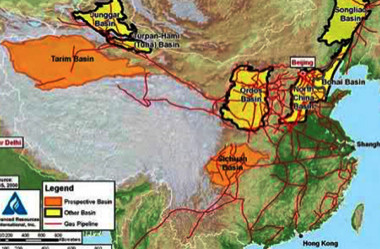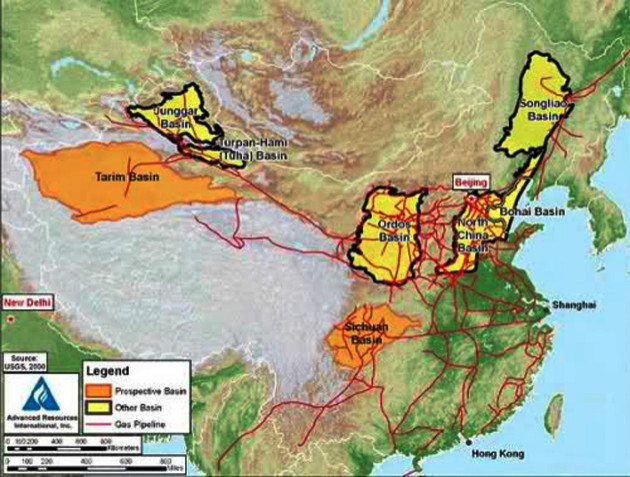China Shale Gas Boom: Third Round Of Shale Gas Auctions Could Happen This Year; Sinopec Already A Player, But China Seeking More (Mostly State Owned) Small-Business Participation

The U.S. may be the world’s fastest-developing shale gas industry, but China is thought have more of the cleaner alternative to coal.

Now, according to a report Friday in Shanghai Securities News quoting an official from the country’s Ministry of Land and Resources, China could hold its third auction of shale gas assets to promote more participation by smaller, regional companies.
The first sale of two shale gas geographic blocks in July 2011 went to China Petroleum & Chemical Corp. (HKG:0386) and Henan Provincial Coal Seam Gas Development and Utilization Co. to explore separate areas; Sinopec is working the 848-square-mile Nanchuan block near the first-tier city of Chongqing while Henan has control of the 787-square-mile Xiushan block nearby.
The second sale, of 19 blocks for $2.06 billion (according to Platts), took place in January, with 16 Chinese companies winning concessions. Only two are privately owned, and the rest are divided among companies owned by national or local governments. Some of these companies have no oil and gas experience and will have to play catch-up.
The Asian giant faces many speed bumps and potholes along its road to exploring and developing the sector in ways the U.S. does not -- namely, less expertise in extracting the fuel than Western companies and a scarcity of water in the areas showing potential.
China’s National Energy Administration wants the country to be producing 6.5 billion cubic meters of shale gas a year by 2015 and expand that to as much as 100 billion cubic meters by 2020, broadly considered to be a highly optimistic figure.
The country currently depends on coal and crude for 90 percent of its energy needs and could account for 40 percent of the world’s crude oil demand by 2035, according to the International Energy Agency.
China would like to see that estimate fall considerably to reduce its dependence on foreign oil imports, and to reduce particulate pollution caused by coal that is choking its larger cities.
© Copyright IBTimes 2024. All rights reserved.






















